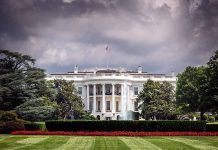
South Korea’s domestic political sphere faced a seismic shift as President Yoon Suk-yeol’s attempt to declare martial law unfolds, threatening diplomatic stability.
At a Glance
- President Yoon Suk-yeol attempted martial law, affecting international relations.
- The impeachment process against Yoon gains momentum.
- If impeached, Prime Minister Han Duck-soo may temporarily lead.
- Potential impact on South Korea’s alliances with the U.S. and Japan.
Political Turbulence Unfolds
South Korea’s political landscape is experiencing significant turbulence following President Yoon Suk-yeol’s controversial attempt to impose martial law. This decision, met with resistance both domestically and internationally, has opened the country to potential shifts in its political alliances and regional strategies. The event threatens to disrupt the domestic political equilibrium, triggering concerns over South Korea’s diplomatic standing in Asia, particularly in its relations with China.
The Yoon administration had emphasized a diplomatic strategy focused on tough stances towards North Korea, solidifying alliances with the United States, and strengthening defense relationships with Japan. Critics, however, express concerns that these relationships could face setbacks. The U.S., while advocating for peaceful resolution, stresses that the current political discord should not undermine South Korea’s commitments, especially in countering China’s regional ambitions.
South Korea is in turmoil after President Yoon Suk Yeol declared martial law and sealed off parliament to block lawmakers from voting.
n another dramatic moment, a South Korean woman was seen confronting soldiers in front of the National Assembly.#southkorea #seoul pic.twitter.com/L00686dyuA— CGTN Europe (@CGTNEurope) December 4, 2024
The Path to Impeachment
The impeachment process against President Yoon is now underway, with significant support from both the public and political factions. If Yoon is impeached, the possibility arises that Prime Minister Han Duck-soo would step in as a temporary leader. This potential leadership shift might result in revisiting agreements such as the General Security of Military Information Agreement (GSOMIA) with Japan, considering the different stances leaders may take regarding foreign policy.
“If Yoon’s impeached and the progressives regain power then I think the outlook for bilateral relations with Japan and the US trilateral will darken,” said Euan Graham, a regional expert with IISS.
South Korea’s emphasis on reducing economic dependence on China while fortifying ties with the U.S. and Japan is integral. However, this current instability could complicate U.S. efforts to maintain pressure on China and affect American-led alliances in East Asia. The political shifts in Seoul may indeed reconfigure the dynamics within the trilateral relationship among the U.S., South Korea, and Japan.
Impact on Diplomacy and Regional Strategy
The incident is unfolding amid significant political and economic tensions, including budget disagreements and governance challenges. Critics of the martial law declaration label it illegal and a misuse of power, further heightening public protests and attracting international scrutiny. Despite these concerns, South Korea’s robust democratic institutions and alliances make a coup unlikely.
The implications of this incident could resonate far beyond South Korea’s borders, potentially impacting regional stability and the broader geopolitical landscape in East Asia. Observers and stakeholders alike are closely watching the developments, as South Korea navigates this period of political uncertainty and its potential reverberations on international diplomacy and regional alliances.








